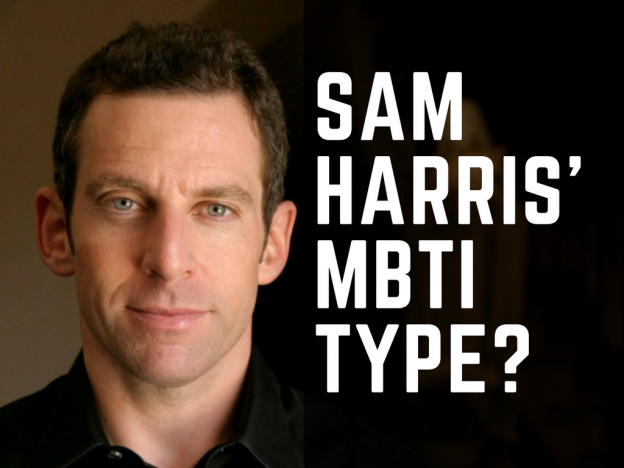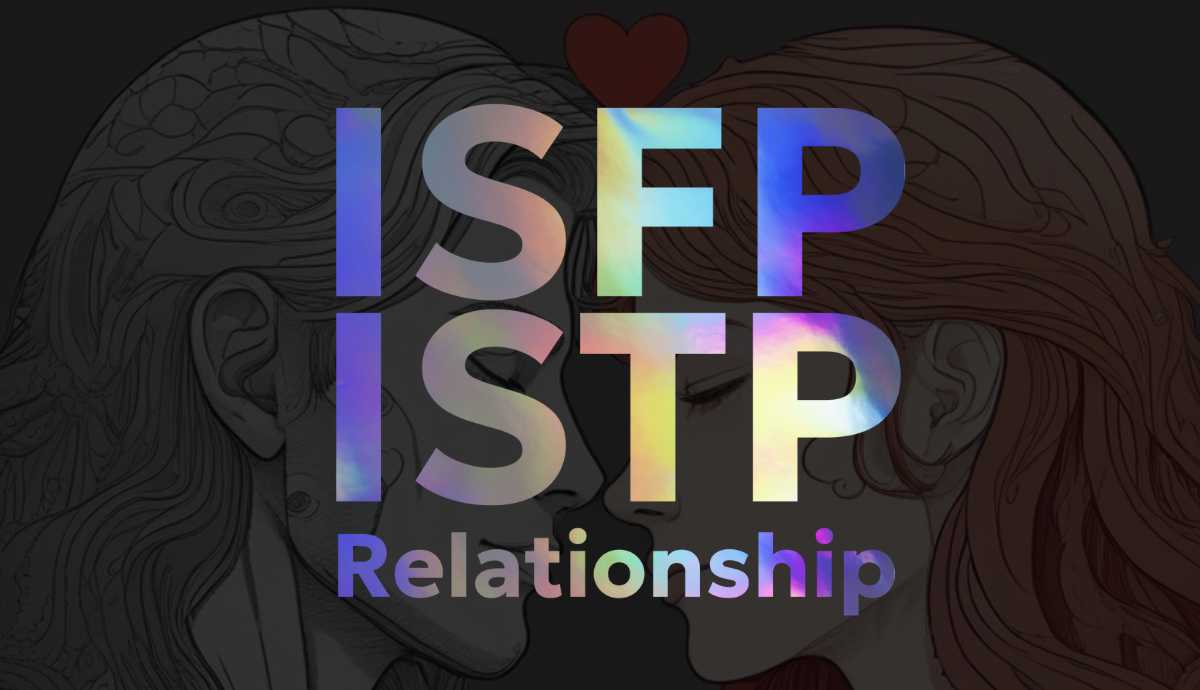Sam Harris (born April 9, 1967) is a neuroscientist, philosopher, blogger and best-selling author of several books including, Waking Up (2014), The End of Faith
(2004), and The Moral Landscape
(2010). He hosts the Waking Up podcast where he deep dives into many of today’s most pressing and polarizing issues surrounding science, ethics and religion. He is known for his cogent analysis and hyper-rational speaking style. But what is Sam Harris’ Myers-Briggs Type? Here is assessment of which MBTI type Sam is likely to be based on the cognitive functions he seems to display most.
Is Sam Harris an Introvert or Extrovert?
Determining whether Sam is introverted or extraverted is hard to say, based solely on his public appearances. He is very polished in his delivery both in his TEDx presentations and on television interviews. His comportment is poised and measured and he speaks with firm conviction. An air of restraint characterizes his communication style and this reserved affect he displays may be a clue as to his possibly introverted nature.
Sensor or Intuitor?
Despite being a proponent of atheism, Sam Harris is not at all opposed to spirituality and has been an advocate of meditation and Tibetan Buddhist philosophy. Harris’ view on religion is that it is born out of a rational human need for consolation and meaning in face of senseless existential tragedy and death. Harris believes that the benefits of spirituality can be divorced of the religious traditions and the impositions that go along with them.
This contravention of traditional religious practice in favor of a more liberal form of spirituality suggests that Harris is not Si-oriented. He doesn’t exhibit much Se either as he seems to operate primarily in the world of abstract ideas and principles as opposed to concrete and literal details about the physical world and experiences.
Sam Harris displays a stronger preference for intuition. He readily utilizes analogy and formulates imaginative scenarios to illustrate his points. He also proffers counter-intuitive notions such as the idea that free will is an illusion. His practice and advocacy for meditation suggests he is open to alternate and unusual ideas and techniques. Harris has also described his experience and insights from experimenting with the psychedelic drug MDMA during his time at Stanford University.
Thinker or Feeler?
Sam’s work covers topics ranging from artificial intelligence, religion, philosophy and morality. His background in neuroscience demonstrates that he is a man of empirical science in addition to his philosophical interests. From looking at his various debates, some clues can be gathered as to where Harris leans on the Thinking/Feeling spectrum. For one, Sam’s communication style is very cogent, clear and precise with a demeanor that is poised and composed. In various interviews he has exhibited a steady, steely gaze often characteristic of INTJs and their infamous “death stare”.
Although he demonstrates a strong interest in social issues and morality, Sam’s views seem to be deeply informed by biology, neurology and objective understandings about human behavior. This alone suggests a strong Te, or Ti bias. He references scientific facts and stats in support of his points. While he clearly believes in compassion and tolerance, he does not condone the subordination of reason to unsound and harmful beliefs. He criticizes what he describes as “bad ideas” and does not go along with the politically correct notion of treating all religions as being equal. Harris is very analytical, which is a very Ti trait and Ti is pretty much the opposite of Fe although some intellectuals such as Noam Chomsky have been typed as INFJ.
[ads-quote-center cite=’Sam Harris’]”As an atheist, I am angry that we live in a society in which the plain truth cannot be spoken without offending 90% of the population.”[/ads-quote-center]In an interview with Russell Brand, Harris said “…I went into neuroscience very much with the interests of a philosopher. I was always interested in understanding the human mind at a high high level [and] that really I would only be doing work in people and I was never thinking of curing diseases, and it was all about just understanding human subjectivity and consciousness and morality and human reason.” Sam Harris seems to be more interested in scientific understanding and speculating on the philosophical problems that impact humanity.
His book “The Moral Landscape” makes the case for how science informs human values. This very point has pitted him in direct opposition with Jordan B. peterson who believes that human moral values were formulated from ancient stories and religious tradition passed down through the ages. At the end of his podcast discussion with Peterson on the nature of “truth”, Harris made an enjoinder to his listenership to provide helpful feedback and suggestions as to what went wrong and how he might correct course and improve in the future.
This expressed desire to ameliorate his tactics suggests the presence of Te which is associated with the desire to optimize and make more efficient. He also expressed disappointment as to he and Jordan’s failure to find a point at which their differing views could converge on the topic of “truth”. This could hint at some Fe and the desire to seek harmony and conciliation at the end of it all.
Judger or Perceiver?
On the Tim Ferriss Show podcast,, Sam Harris talked about his daily routine of meditation. In the morning, he gets up, looks for caffeine and checks his emails. He claims that he does not have quite as much structure in his life as he should but more or less gets done what he needs to get done. Having published 7 books over the span of 14 years, and earned his Ph.D in Neuroscience and a Bachelor’s in Philosophy, Harris is likely to possess good work habits and an ability to concentrate and manage his time effectively.
All things considered, Sam Harris is likely to be an INTJ. INTJs are statistically among the top 3 types overrepresented among male substance abusers and have the highest GPA among persisters in college. INTJs also rank spiritual/philosophical resources as their most preferred coping mechanisms for stress. Harris’ dabbling with MDMA, eastern philosophy and meditation as well as his high achieving academic chops, are strong evidence in support of him being INTJ.
Want to know your astrology placements? You can generate your astrology chart here with our free birth chart generator tool.
[ads_color_box color_background=”#140000″ color_text=”#fae0ff”]Please share this post and subscribe for future updates :)[/ads_color_box]
- related posts:
- Which MBTI type is Jordan B. Peterson?
- Which MBTI Type Is Most Likely To Cheat?
- Which Myers Briggs Type Is Most Likely To Be A Serial Killer?
- What Each MBTI Type Does When They Have A Crush
- How To Get Each Myers-Briggs Type To Love You
- Why Each Myers-Briggs Type Is Dangerous
- Why Each Myers-Briggs Type Likely Quit Their Job
- Why Do INTPs Procrastinate?
- The 8 Cognitive Functions Explained - May 17, 2025
- American Presidents Ranked By Zodiac Sign - January 20, 2025
- ESTP and ESFP in love: 6 Dynamics of Their Relationship - September 4, 2024





